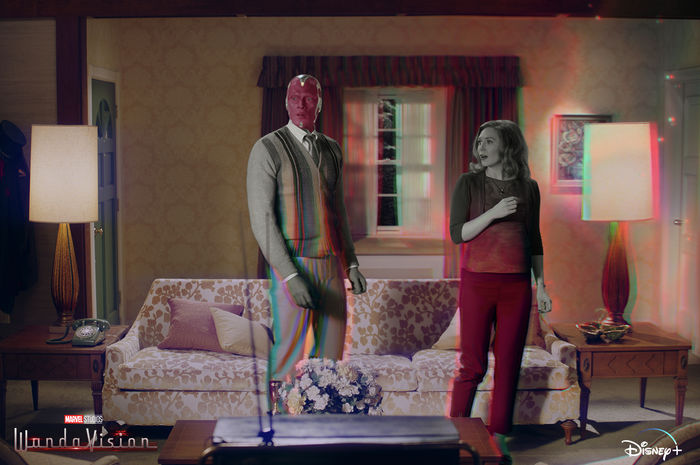The Dangers of Constant Reboots and Revivals
Isabella Addo explains the pitfalls of shows despite their nostalgic appeal.
In recent years, television has seemed to collapse into a never-ending cycle of reboots and revivals, like Gilmore Girls: a Year in the Life and Fuller House. Iconic characters and old storylines that we know and love keep returning to our screens year after year. While I have thoroughly enjoyed watching grown-up versions of beloved characters experience the same world that I live in, I am not so convinced that reboots are the best projects that the television industry has to offer. This wistful culture of revisiting shows that deservingly had their time in the sun is exciting, but this age of nostalgia is almost like a drug. And for television execs, it is an easy cash cow as old and new audiences are drawn back into stories that have proved their longevity.
However, these endless reboots run the risk of stagnating and stalling creative efforts that are currently being ignored, existing in the background. while older shows steal the limelight.
“This culture of nostalgia and reboots is worrying, because it forces us to live in the past.”
This is not to say that reboots and revivals are a waste of time — far from it. That would make me the biggest fraud, considering that I am obsessed with them myself — don’t ask me how many times I’ve binged Girl Meets World (a spinoff of the 90s hit show Boy Meets World on Disney+), and I am eagerly awaiting the Gossip Girl reboot arriving in late 2021. Yet, I do worry that this culture of rebooting everything we’ve already watched is dangerous because, quite simply, less original shows get created, fresh and talented creators don’t get their ideas heard, and we end up regurgitating plots and storylines that we’ve been gripped on before.
Along with these issues, there’s another crucial one that I find to be the most frustrating, and that is the lack of diversity and inclusion on and off screen. I’m no stranger to this topic at all, as many of my friends have questioned my television choices, pointing out to me that most of what I consume is steeped in whiteness. While I’ll never apologise for my obsession with 90s and early 00s shows and movies, I do recognise that the patterns of the past should be radically altered for the better. This discussion comes at a time where further conversations are being held across various industries about diversity and what that should look like. For the television industry, I think that this “inclusivity” work is futile if creators are not given the space and opportunity to produce and craft shows that reflect these necessary and long overdue changes.
This is not only a conversation about what we are shown on screen, as the culture of what happens behind the scenes — hiring actors of colour and giving them significant roles, is also pivotal. For example, Candice Patton who plays Iris West on the CW’s adaptation of The Flash is the first Black woman to ever play this character. She has been a strong advocate for better off-screen diversity practices, such as having Black hair and makeup artists or writers of colour who can write storylines that reflect the reality of these characters. These types of changes are key if we are to have a television industry that thrives on innovation and originality rather than performative “diversity” actions which don’t achieve anything or change the industry from the inside out.
This culture of nostalgia and reboots is worrying, because it forces us to live in the past. It’s also extremely comforting and enjoyable to do so. I couldn’t tell you how much pleasure I have received from revisiting some of my favourite shows — from watching Lorelai and Rory walk through Stars Hollow again in Gilmore Girls: A Year in the Life, to seeing a new version of Max and Liz fall in love on Roswell: New Mexico. However, despite this, I think that we are entering a new point in time where we all want something truly new from our television sets and streaming accounts. Many people of colour, myself included, deserve to take up space on-screen and off-screen, in a much bigger capacity than we do now. My biggest concern is that through living in this era of reboots and revivals, we might miss the talent of new creators of colour, recycling old characters and whitewashed storylines when we could be investing in innovative and original content that is diverse, inclusive and reflects the real world that we live in today.
 News / Judge Business School advisor resigns over Epstein and Andrew links18 February 2026
News / Judge Business School advisor resigns over Epstein and Andrew links18 February 2026 News / Hundreds of Cambridge academics demand vote on fate of vet course20 February 2026
News / Hundreds of Cambridge academics demand vote on fate of vet course20 February 2026 News / Petition demands University reverse decision on vegan menu20 February 2026
News / Petition demands University reverse decision on vegan menu20 February 2026 News / CUCA members attend Reform rally in London20 February 2026
News / CUCA members attend Reform rally in London20 February 2026 News / Gov grants £36m to Cambridge supercomputer17 February 2026
News / Gov grants £36m to Cambridge supercomputer17 February 2026










